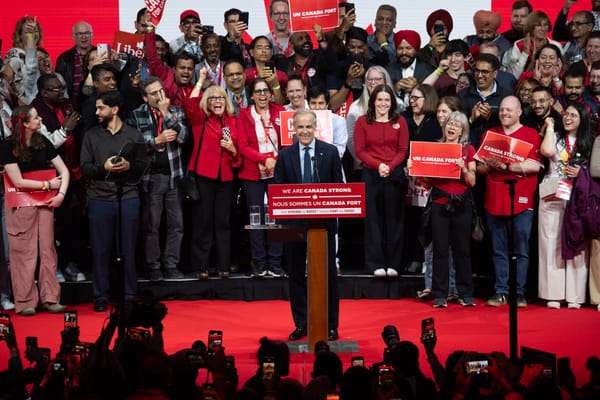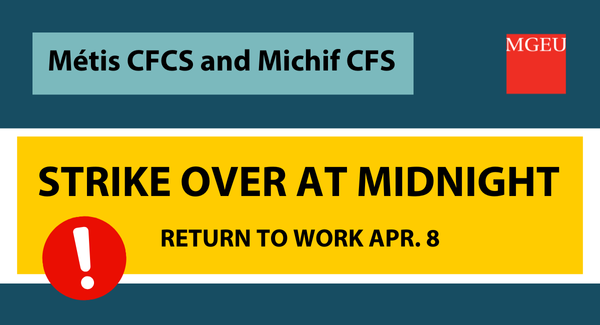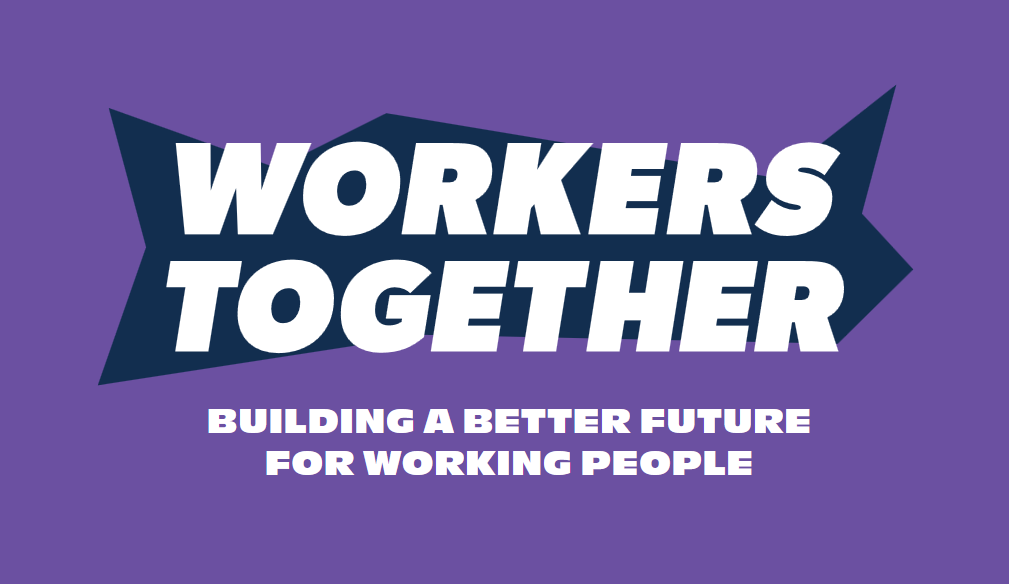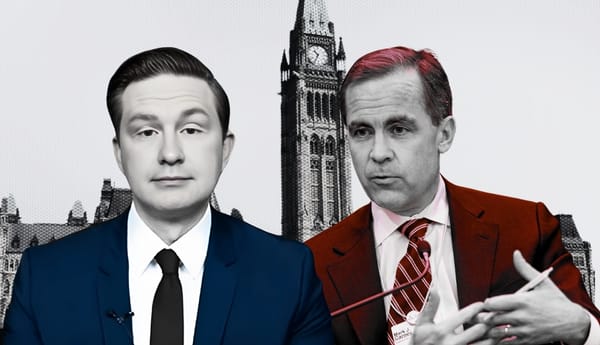
Thousands of members of the Canadian Union of Public Employees (CUPE) across New Brunswick walked off the job late last week after mediated collective bargaining negotiations broke down when the provincial government walked away from the table on October, 26.
CUPE in New Brunswick represents approximately 22,000 members across ten locals, including hospital staff, public transportation employees, custodians, educational assistants and other public school support staff, community college employees, as well as guards and other staff in provincial jails. According to the union, the strike will impact every sector of the provincial economy.
Earlier in October, as talks appeared stalled and the Conservative provincial government of Blaine Higgs refused to move on the union’s entirely reasonable wage proposals, CUPE members voted by 94 per cent to authorize a strike.
The last offer from the union sought wage increases of 3 per cent per year over a four-year contract, already whittled down from CUPE’s original proposal for 5 per cent yearly increases. The government, on the other hand, entered negotiations attempting to impose a 1.25 per cent wage increase over the entire proposed five-year contract.
The latest union and government wage counter-proposals, it should be noted, are below the current rate of inflation rate of 4.4 per cent.
Higgs’ government remains steadfast that 2 per cent yearly wage increases over a five-year contract are as high as it was willing to go, owing to New Brunswick’s supposed “financial troubles.” Yet, the province’s fiscal update released in mid-October revealed that the Conservatives had amassed a surplus of $409 million last year alone, with an additional projected surplus of nearly $38 million in the current fiscal year. The government claims that most of last year’s surplus resulted from one-time pandemic-related federal health transfers, and that New Brunswick still faces a sizable debt burden.
Yet, the New Brunswick government has run four consecutive budget surpluses, the last during a global pandemic when governments the world over were spending hugely to protect public health and keep economies afloat.
CUPE rightly denounced the government for accumulating a pandemic budget surplus on the backs of front-line workers. “It’s absurd. The conservatives want to force workers to take below cost of living wages, even if they already are the lowest paid of the lowest-paid public service workers in Canada,” said CUPE New Brunswick president Steve Drost.
The government had previously offered to bring those classified as “casual employees” up to the pay levels of full-time staff. However, the Conservatives also attempted a bait-and-switch when it comes to pensions. The government wants to convert two defined-benefit pension plans and fold them into a larger provincial “shared risk” plan already imposed on other public servants. In exchange, workers who currently have no pension coverage, such as educational assistants, would gain access to this new, much riskier, pension scheme. Higgs claims this would save the province $1.5 million per year, which will come from workers assuming the risk of lower retirement benefits when financial markets inevitably slump.
It is the battle over wages that has received the greatest public attention, however. The Conservative government has flatly refused to address the persistently low wages of public sector workers in News Brunswick.
As the union has been highlighting, New Brunswicks’ public sector workers remain the lowest paid in Canada. Most of the locals involved in the current strike have been without collective agreements for four years, while workers have been forced to live on stagnant wages for the previous 12 years. Moreover, Premier Higgs now claims that with the union in a legal strike position, previous proposals are off the table. “It’s a new day,” according to the Premier.
The Conservative provincial government is driving a particularly hard bargain on public sector wage increases, likely in an attempt to avoid raising the expectations of the 55,000 public employees in the province.
While the Conservatives have been stonewalling the union bargaining team at the table, the New Brunswick Labour and Employment Board has been busy designating huge numbers of CUPE members “essential” ahead of the strike deadline. Nearly three-quarters of those working in provincial jails will be unable to strike, while over half of CUPE members in healthcare cannot join the picket lines. Education will be the sector most impacted by the strike, as only approximately five per cent of workers have been deemed “essential.” Bus drivers, custodians, educational assistants and other support staff are all off the job.
New Brunswick education minister Dominic Cardy released a letter ahead of the strike advising parents that schools would likely close and move to “online learning.” “However, I want to assure you that our experience managing the COVID-19 pandemic throughout the past year has demonstrated that the education system is flexible and adaptable,” Cardy wrote. This is precisely what many opponents of online education feared: that the supposed “flexibility” of the virtual classroom could be used to undermine teachers and other unionized education workers.
CUPE leadership and members will need to do concerted outreach to parents and communities across the province to counter the government’s narrative that the strike will harm children and families, and is a selfish act by the union during the fourth wave of the pandemic which continues to embattle the province’s health care system.
Before the strike began, Higgs was already threatening back-to-work legislation to “take action to protect New Brunswickers.” Of course, the irony here is that “essential worker” designations are supposed to reduce the necessity of back-to-work legislation. With public safety already “protected” by removing thousands of workers’ right to strike through “essential” designations, the government ostensibly has less rationale for legislative intervention.
Clearly expanding “essential service” designations has done no such thing. On the contrary, the state’s ability to remove the right to strike through any method only emboldens it to do so through all means.
Should the provincial Conservatives politically curtail CUPE members’ right to strike, it would be the latest instalment in the long tradition of provincial and federal governments legislating striking public sector employees back to work and refusing to bargain in good faith.
Additionally, because New Brunswick is still under a pandemic “state of emergency,” a back-to-work order can be imposed through a cabinet directive, by-passing the provincial legislature — and more quickly undermining the democratic right of union members to strike. Should this undemocratic cabinet directive cause too much public fuss, Higgs and his Conservative majority will be able to table and pass back-to-work legislation in the provincial legislature, though this route will take slightly longer.
CUPE President Drost, writing in the New Brunswick Media Co-op, linked the union’s fight to the strike wave in the United States. “Workers around the world are fed up and they’re starting to stand up and fight back. In our neighbors to the south, more than 100,000 workers are currently taking job action, and they’ve had many, many strikes in the past two or three years because they are demanding fair compensation and dignity and respect,” he said.
Workers celebrated as essential only a year ago amidst a deadly pandemic are not prepared to continue to accept stagnant wages, crumbling social infrastructure, and public sector austerity.
“You can’t treat frontline workers like this. These frontline workers have been forced on the picket line by this government. It didn’t need to happen,” Drost said ahead of the strike. Now that it has happened, let’s hope CUPE members in New Brunswick are able to win their demands, and that the rest of the Canadian labour movement offers the necessary solidarity.
In all likelihood, their fight will be the opening salvo to similar battles across the country as governments attempt to impose the costs of the pandemic on workers. We can’t let that happen.







